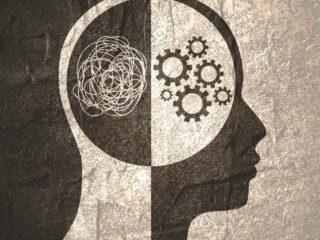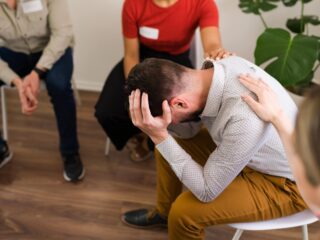There are many household items and medications to avoid in recovery from alcohol use and substance use disorders. Some of these items might seem harmless. However, for an addict, the same items can be a source of temptation that can trigger cravings and result in relapse.
Vulnerability in Early Recovery: What to Know
The early stages of recovery are when people tend to be the most vulnerable. They are still learning how to live a new sober lifestyle while working on improving their health and developing effective coping mechanisms for cravings and triggers.
When there are temptations in the home around them, it is easy to get distracted and lose focus. For instance, they could start reminiscing about their “glory days” of substance misuse and how much fun they had without thinking about the consequences their substance use may have caused.
In addition, they no longer have the structured environment they had while in rehab. Instead, they must face everyday problems just like everyone else. Yet, for someone in early recovery, the added stresses brought on by everyday problems can be very overwhelming and lead to lapses when medications and everyday items are easily accessible in the home. As such, it is essential to ensure the home you or your loved one returns to has eliminated alcohol, drugs, and other substances that could be misused.
Medications to Avoid in Early Recovery
Particular prescription and over-the-counter medications should be avoided in recovery as they can lead to dangerous consequences, including relapse. The last thing a recovering individual wants is to undo all of their hard work, so it is important to know which medications to avoid specifically.
Prescription Medications
Certain prescription medications should be avoided due to their addictiveness, including:
- Valium
- Xanax
- Codeine
- Morphine
- Amytal
- Phenobarbital
- Klonopin
- Ambien
- Lunesta
- Fentanyl
- Oxycodone
- Hydrocodone
- Oxymorphone
- Ritalin
- Adderall
Over the Counter Medications
There are also over the counter medications you will want to avoid while in recovery, including:
- Any type of nighttime or sleep medication.
- Cough syrups containing Dextromethorphan (DMX)
- Any liquid medication that contains alcohol, such as NyQuil, ZzzQuil, Robitussin, Vicks, and Halls.
- Decongestants, anti-allergy, sinus, and cold medicines that contain Pseudoephedrine.
- Motion sickness medications containing Dimenhydrinate.
Before starting a prescription or over-the-counter medication, it is crucial to ask your healthcare provider if the medication can be habit-forming. If so, then you will want to ask them to prescribe or recommend another medication. That being said, there are prescriptions and over the counter medications you can use in recovery, such as:
- High Blood Pressure Medications
- High Cholesterol Medications
- Antibiotics
- Antivirals
- Tylenol
- Aleve
- Advil
- Midol
- Motrin
- Aspirin
- Mental Health/Behavior Medications
Everyday Items to Avoid in Recovery
Aside from various medications to avoid in recovery, there are other everyday items you will want to remove from your house to help you avoid lapses, such as:
- Alcohol – There should be no alcohol in the home to avoid any temptations to drink.
- Mouthwashes with Alcohol – Many mouthwashes contain alcohol, so get rid of those and replace them with alcohol-free products.
- Inhalants – Inhalants include a wide range of products like rubber cement spray paint, nail polish remover, model glue, and butane. Even whipped cream in an aerosol can is considered an inhalant.
- Spices/Seasonings/Herbs – Most extracts contain ethanol or alcohol, including vanilla extract and almond extract. Certain herbs have sedative or stimulant properties, like St John’s Wort and Valerian root.
- Hand Sanitizer – Many hand sanitizers contain alcohol, so they should be replaced with alcohol-free products.
- Aftershave/Cologne/Perfume – Many of these products use ethanol for their base, so they should be removed from the home.
- Deodorizers and Air Fresheners – Many of these products contain nitrites (poppers) that can lead to misuse.
While many everyday items might be viewed as not as dangerous as misusing alcohol or drugs, it is vital to remember these items can be more accessible. In addition, misusing household items is very dangerous and could lead to accidental overdose or even death.
What If Someone in the Home Needs Medication?
When a family member needs a prescription or over-the-counter medication that should be avoided, they need to lock them up in a lockbox or other secure location to remove any sort of temptation. They should also avoid taking the medications around them.
Besides eliminating all temptations from the home, your family should be prepared to change certain habits where alcohol or drugs were present in the past. Instead, you and your family should explore new hobbies and activities that encourage a substance-free and sober lifestyle.






